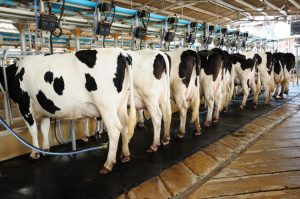Preservation Of Indigenous Cattle Breeds:

The National Institute of Animal Biotechnology (NIAB) is working on a number of initiatives for preservation and sustainable development of the livestock sector.
- NIAB is using Next Generation Sequencing (NGS) data and genotyping technology to establish molecular signatures for registered cattle breeds.
- Molecular signatures help in accurately identifying and maintaining the purity of indigenous cattle breeds and conserving unique genetic traits.
- NIAB is focussing on developing new-generation vaccines against diseases like brucellosis to improve animal health and reduce economic losses.
- Efforts are aligned with the ‘BioE3 (Biotechnology for Economy, Environment, and Employment)’ policy to enhance biomanufacturing.
- NIAB is focussing on development of ‘bio-scaffolds’ for tissue repair and drug delivery using natural and 3D-printed materials.
- Scaffold is a base material in which cells and growth factors are embedded to construct a substitute tissue.
- A bovine lung cell-based 3D model has been created for tuberculosis drug screening and disease modelling.
- NIAB is working in line with six thematic areas set by the Department of Biotechnology (DBT) to promote a circular bio-based economy, focusing on alternative proteins and sustainable biomanufacturing.
- NIAB has plans to use bacteriophages and their ‘lytic’ proteins as antibiotics alternatives to target bacterias such as staphylococci, E. coli and streptococci.
- Bacteriophages, also known as phages, are viruses that infect and replicate only in bacterial cells. Bacteriophages kill bacteria.
- Phage lytic proteins are a clinically advanced class of enzyme-based antibiotics, so-called enzybiotics.
- A biomarker (metabolite and protein) has been developed for early assessment of nutritional stress which may lead to decreased productivity and infertility in cattle population
- NIAB promotes sustainable livestock farming through community engagement and programs like MILAN, which connects with livestock farmers to demonstrate new technologies.




